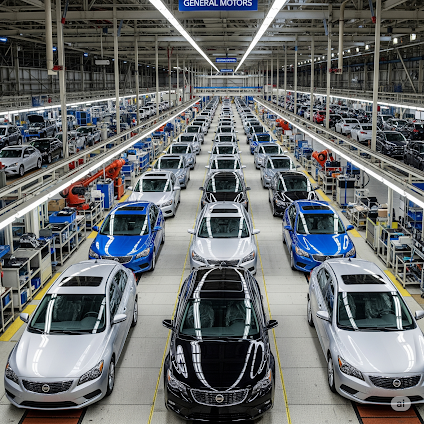Ford, GM Consider China Plants Amid Trump-Era Trade War Fallout
U.S. Automakers Consider Moving Production to China Amid Rare Earth Export Controls
The ongoing trade war between the U.S. and China is causing unintended consequences for American automakers. According to a June 4 report by The Wall Street Journal, companies like General Motors (GM) and Ford are considering shifting some electric motor production to China due to China’s export restrictions on rare earth materials.
These restrictions, which require special export licenses for seven types of rare earth elements, were introduced as a countermeasure to U.S. tariffs initiated by former President Donald Trump. Despite a temporary tariff truce agreed upon in May, China has not lifted its export controls on rare earths.
Key elements like dysprosium and terbium, essential for heat-resistant magnets used in electric motors, are 90% supplied by China. These components are also critical in sectors like semiconductors, robotics, wind power, defense, and healthcare.
The Alliance for Automotive Innovation (AAI) and the Motor & Equipment Manufacturers Association (MEMA) warned the Trump administration that supply disruptions could halt production of not only transmissions but also safety belts, lights, speakers, and cameras, leading to production cuts or assembly line shutdowns.
Ford has already halted production for a week at its Chicago plant that manufactures the Ford Explorer due to rare earth magnet shortages.
European manufacturers are also facing disruptions. According to CLEPA, several plants have already paused production, and more are expected to be impacted within the next 3–4 weeks unless China lifts its restrictions.
#RareEarthCrisis #AutoIndustry #TradeWar
#ChinaUSRelations #ElectricVehicles
#GM #Ford #ManufacturingShift
#SupplyChainCrisis #TrumpTradePolicy





댓글
댓글 쓰기